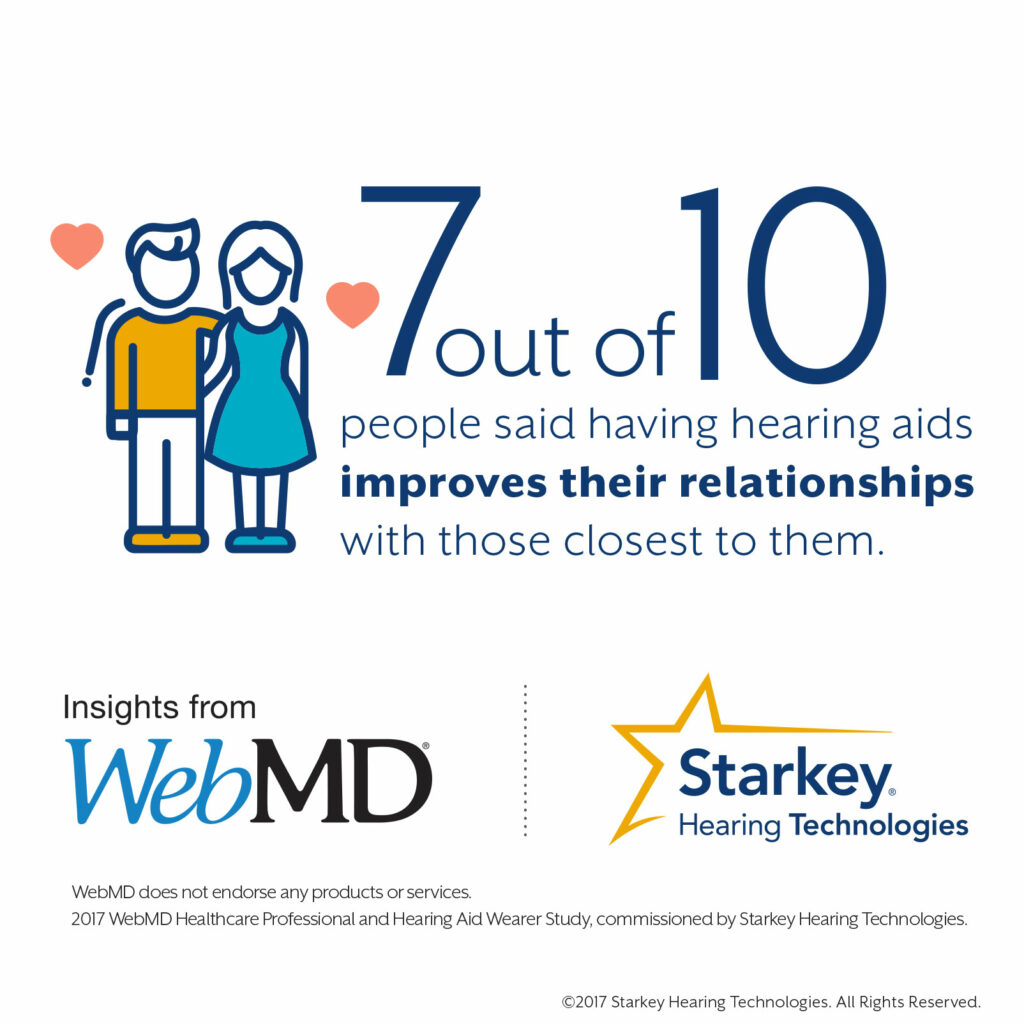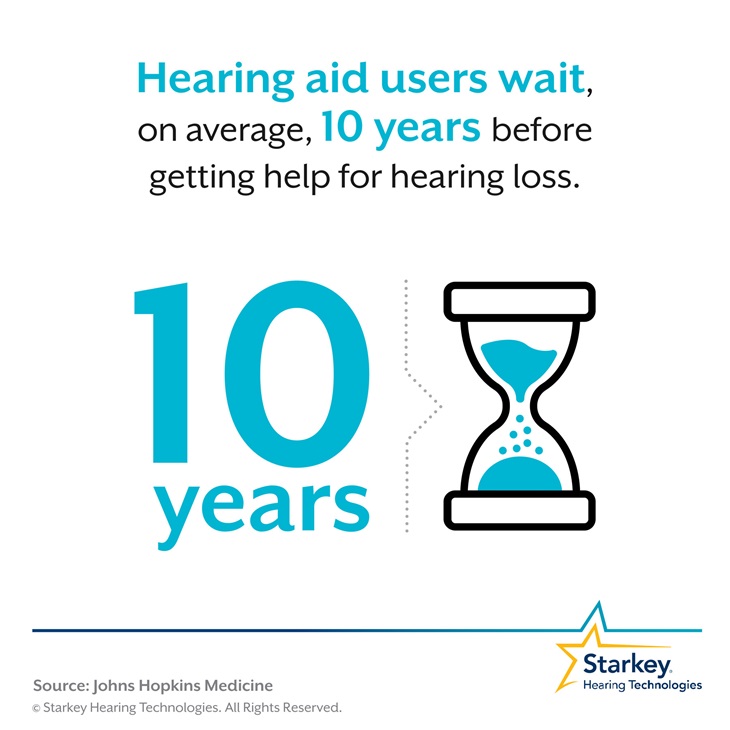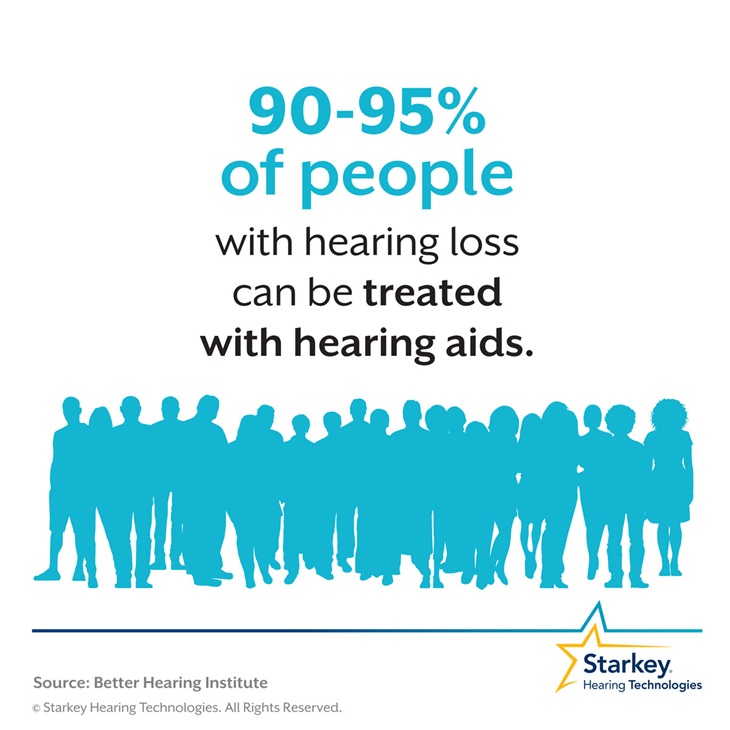While convincing someone to seek help for hearing loss is the right thing to do, it is not always an easy conversation to have. Understanding how hearing loss affects people coupled with some tips on having “the talk”, will make the process smoother and more likely to have a positive outcome.
Understanding Hearing Loss:
Hearing Loss Is Stressful
You don’t have to read a scientific study to know that someone straining to understand a conversation is going to have increased stress levels. Socializing becomes difficult and even embarrassing when a person must ask someone to repeat themselves over and over hearing loss sufferers often withdraw socially. To make matters worse depression can develop. The good news is that once receiving treatment people will reengage and become more active with family and friends

Many People Don’t Realize They Have Hearing Loss
There are several reasons why an individual may not realize how bad their hearing has become. The most significant is that hearing loss due to aging or noise induced hearing loss (NIHL) takes years to develop. Small negative changes over many years are simply not easy to notice. People learn to compensate for the unseen changes in their hearing by trying to minimize the effects. Eventually a breaking point is reached where communication becomes too difficult for family and friends around them.

Having the Conversation About Hearing Loss
Where and How to Talk About Hearing Loss
A little planning can go a long way to a successful talk. Background noise vastly reduces a hearing loss sufferers ability to understand. Picking a neutral setting that is both comfortable and quiet is important to make understanding the conversation easier while reducing stress. Also important is to face the person you are speaking with as it makes it easy for them to read your expressions and possibly even read your lips. A sitting distance of 3-6 feet is recommended. Speaking clearly and calmly without shouting ensures easier hearing and avoids creating potentially negative feelings. Finally, showing empathy and patience by not cutting off the person speaking, goes a long way to a positive outcome.
Overcoming the Biggest Complaint
The single biggest complaint when it comes to hearing aids is that they make people look old. You can ease that argument in one sentence. Hearing aids are now small enough to fit inside the ear canal and are often referred to as “invisible hearing aids”. If that isn’t enough, a gentle reminder that when someone repeatedly asks, “what was that?” or “can you repeat that?”, doesn’t imply the listener has found the fountain of youth. Be nice!
95% of hearing loss can be treated with hearing aids.
Benefits to Treating Hearing Loss
To help convince your friends or family member to get help, you are going to want to talk about the positive benefits of getting treatment for their hearing loss.
- No more embarrassment from asking “What?” all the time
- Improve close relationships and social interactions
- Remove the stress of trying to compensate for hearing loss
- Avoid the increased risk of developing dementia & Alzheimer’s from untreated hearing loss
- Reduces falling risk – untreated hearing loss can increase falling by 3x
Your Support Makes A Difference
Most people are at least a little bit nervous about seeking treatment for hearing loss. Offering to accompany them to their hearing test and evaluation will reduce any anxiety and ensure follow through. To avoid feeling overwhelmed, you may want to make a list of questions to ask together so that way you will get all the answers you need to make decisions. Finally, you can also remind them that our offices are in a private, out of the way location and all client information is strictly confidential.
Consider the statistic that on average people wait up to 10 years before seeking treatment for hearing loss. That’s a long time to be missing out on conversations, entertainment and the sounds around us we take for granted daily. To help your family member or close friend hear what they have been missing, call the Polo Park Hearing Centre staff at (204)788-1083.


